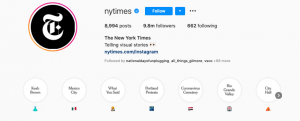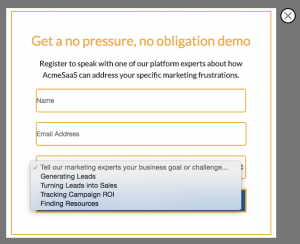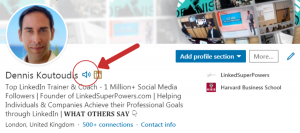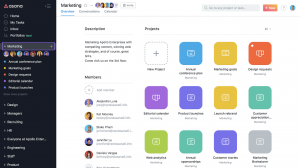“How do I get ranked higher on Google?” We at SEO Inc. work tirelessly to find that answer out for our clients. Thankfully, so does Backlinko, the same business behind the infographic listing Google’s 200 SEO Ranking Factors.
Backlinko recently analyzed 1 million Google search results to find out: What is SEO ranking determined by? Is it links? Content? Site speed?
Many of these findings reflect the SEO services we have been providing for over 18 years. But even for veterans like us, there’s still plenty to learn here. This study reminds us that you should always stay on top of the latest SEO news. How else can you make sure your methods are still the best?
Note: The data shows correlations, and should not be considered hard-and-fast rules. Time-tested SEO strategies and best practices are still the most effective way to get ranked. But having practical knowledge of these SEO factors reinforces a lot of what we already know is working.
Enough talk. Let’s get to the most impactful SEO ranking factors.

Backlinks: The “Strongest” SEO Factor
We can’t stress enough the importance of a healthy backlink profile. The study shows that the more unique domains linking to you, the higher your Google rankings should be. What’s more, having lots of different sites linking to you is better than lots of links from a single site. Actually, it’s more than good—Backlinko reports “the number of unique referring domains was the strongest correlation in [the] entire study.” Getting good, quality links isn’t easy, but it is incredibly important.
The study also shows a strong correlation between rankings and domain authority. So the higher authority of your domain, the higher your rankings could be for other pages on your site.
These links should also be healthy. Meaning they should come from relevant sources, and definitely not link farms. Bad links can earn you a Google penalty, which can absolutely kill your rankings. (If you have one, here’s how to remove a Google Penalty.)

Content: Still King, But Only if “Comprehensive”
We’d like to go one week—just one, without hearing how “Content is King.” But this finding shows that content is still really important. So maybe we need to look at what kind of content is worthy of the crown.
The answer—comprehensive content. Backlinko defines this as “focused content that covers a single topic.” In-depth examples include a Wikipedia page on the director of Back to the Future, and how to make Indonesian satay sauce. Content that dives deep and provides an informed, authoritative answer to a search query is likely to get ranked highly. And it’s pretty easy for your comprehensive content to get recognized, thanks to Google Hummingbird. Since this specific update, Google is great at understanding what a page’s topic is about and ranking it appropriately.
It’s up to you to deliver the right kind of content to your customers. But now that you know what you should be writing, that should be the easy part. The real challenge comes next.
The amount of content matters as well. The data shows a strong correlation between high word counts and high rankings. It could be that the number of words shows your dedication to provide “excellent content.”
Although the study just shows correlations, it isn’t hard to tell what you need to do. After all, Google keeps telling us to write content for users, not search engines. Writing useful content that people will actually want to read should be your goal. And if you can do it in an average of 1,890 words (the length of the average Google first page result), then all the better.
You should also add at least one image to your content. Content with an image has been found to “significantly outperform content without any images.” You don’t need to add more than one, as additional images did not affect rankings for the study. Still, multiple images can break up long paragraphs of text, making your content easier on the eyes. Remember, eye movement tracking is important for retaining users’ interest.

HTTPS and Site Speed: Make Your Site Safe and Fast for Users
Worried about site security? You can rest easy—first page Google rankings correlate strongly with sites that have HTTPS versions. Google has officially confirmed HTTPS as a ranking signal, so it’s nice to see the data back this up. This makes putting in the work to go to HTTPS all worthwhile.
Haven’t moved your site to HTTPS yet? Get a free quote from SEO Inc. and get your site secured from hackers and other ne’er-do-wells.
We’ve seen from our own studies that faster websites = more revenue. Backlinko’s study shows us that fast-loading sites are directly related to higher rankings, which were shown higher than those of slow-loading sites.
The importance of HTTPS and site speed are nothing new—Google wants you to make your site fast and secure to offer users the best, safest experience. Bringing in higher traffic and conversions is secondary (in Google’s eyes, at least) to making your site a welcoming place for visitors. So get the changes done and you’ll reap the benefits.
What is SEO Ranking? What’s the Secret to Getting on First Page?
So how do you go about implementing these SEO factors for your site? Just to remind you, we’ve only listed the major SEO factors. The study actually listed many more correlations, all of which can have a positive impact on your Google rankings.
If that seems like a lot of work, well, that’s because it is. But that’s okay—SEO Inc. is here for you. The data proves we’re on the right track when it comes to getting first page rankings. And we’ve got what it takes—over 18 years!—to execute your solid SEO strategy. Backlinks, quality content, site security, and so much more—we can do it all for you.
Drop us an email, and let’s get your business on Page One.
Digital & Social Articles on Business 2 Community(103)
Report Post








